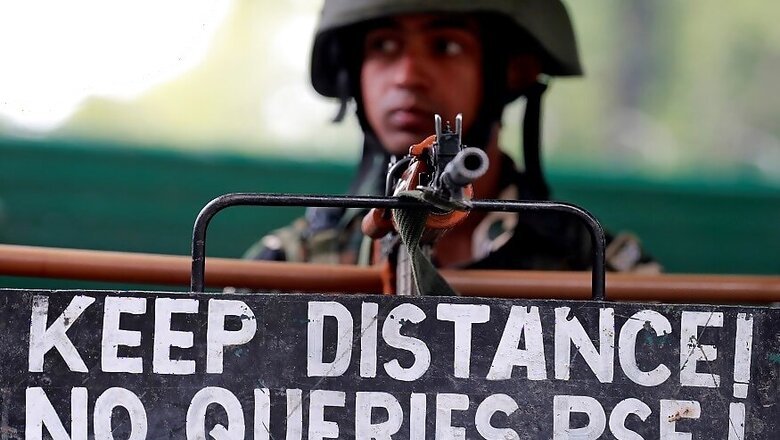
views
New Delhi: Citing "national interest and sovereignty of nation," the Press Council of India (PCI) has moved the Supreme Court for a hearing in a petition filed by Kashmir Times Executive Editor Anuradha Bhasin against restrictions on communication facilities in Jammu and Kashmir.
The impleading applications moved by the PCI has sought to point out that it has regulations in place for self-restraint by journalists on issues of "paramount national interest".
The plea emphasised on code of conduct for the journalists to be exercised in the "morally, social and national interests" while underscoring that Bhasin's chief grievances seem to be "loss of circulation, readership and ultimately the loss of earnings" owing to the restrictions prevailing in J&K.
The application highlighted that Bhasin's petition does not mention “abrogation of most contentious provision of the Constitution, which has caused the restrictions on communication and other facilities in the interest of the integrity and sovereignty of the nation”.
The petition, which apparently sought to justify the restrictions for the time being, added that the PCI is duty-bound not only to ensure freedom of the press but has to also ensure high standards of public taste, and foster a due sense of both the rights and responsibilities of citizens, and to keep under review any development that is likely to restrict the dissemination and supply of news of public importance.
Since Bhasin's petition, PCI said, concerns the rights of journalists on one hand and national interest of integrity and sovereignty on the other, it should also be allowed to present its views.
Bhasin's petition is likely to come up for hearing now on September 16.
In her petition filed earlier this month, Bhasin said that communications blockade and strict restrictions on movement had resulted in a virtual blackout, and media reporting and publishing was grievously impacted.
Along with several other petitions on the issue of abrogation or Article 370, Bhasin's petition had also come up for hearing in the Supreme Court on August 16, when the court noted that petitions were not technically clear of defects and hence could not be heard on merit. No orders were passed on that day.




















Comments
0 comment